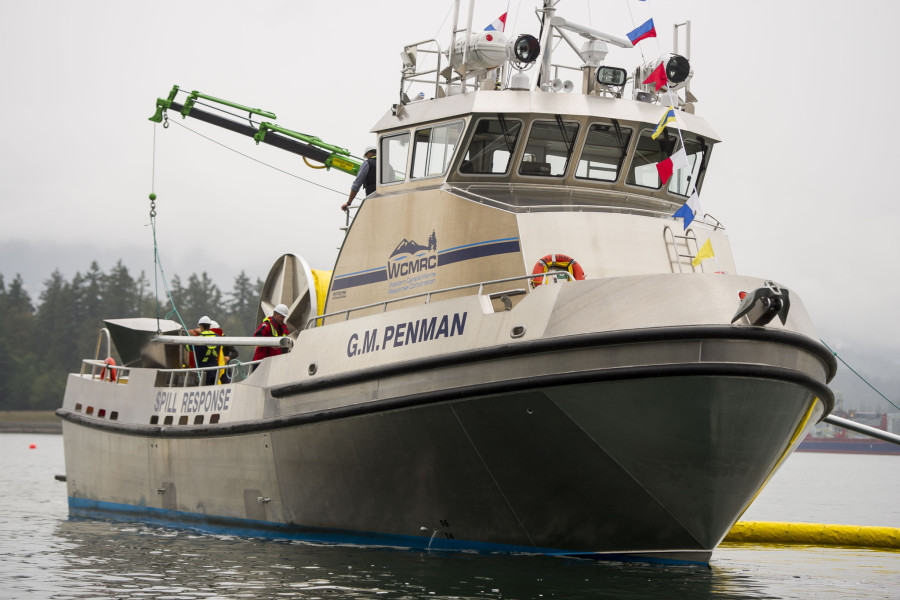
The Western Canada Marine Response Corporation added a new oil spill vessel to their Vancouver fleet Tuesday afternoon. The boat was named after former employee George Penman and was christened in Burrard Inlet in a private ceremony.
The $4.5 million oil spill response vessel is 20 metres long and has a top speed of 26 knots. Getting oil out of the water after a spill needs to happen as quickly as possible, and WCMRC said this boat can deploy booms within minutes and has a skimming capacity of nearly 33 tonnes per hour.
“This particular vessel is designed for open water response,” WCMRC spokesman Michael Lowry told Vancity Buzz.
“It can handle those unsheltered water conditions, which is a big plus for us.”
The vessel can accommodate five crew members for overnight stays, allowing it to operate continuously when situations become dire. It has a forward-looking infrared camera to detect oil during the night.
“It’ll be the most high-tech vessel on Canada’s West Coast, that’s for sure,” said Lowry.

Image courtesy of WCMRC
The G.M. Penman will be stationed at the Main Street dock downtown for the foreseeable future while sea trials are underway. The total number of oil response vessels in B.C. is now up to 32, roughly distributed between the Lower Mainland, Vancouver Island, and around Prince Rupert.
[am2_see_also]
Lowry stresses the addition of this boat was in the works before the M.S. Marathassa oil spill in English Bay, and does not come as a result of it.
“We are constantly adding new vessels and new equipment. We already have significant assets within the Burrard Inlet to handle oil spills,” he said.
“Our response time was 80 minutes from the time we were activated. The independent review showed our response time was excellent and there was no fault in the operations.”
He added that they have a total of 12 vessels in the Burrard Inlet and three or four of them were used for that particular spill.
The Independent review of the M.S. Marathassa oil spill found that miscommunication and a lack of understanding of duties between the Port of Vancouver and the Canadian Coast Guard were among the reasons for a slower activation time. Twenty-five recommendations were made by reviewer John Butler to the Canadian Coast Guard to improve the process.
The English Bay oil spill saw 3,000 litres of bunker fuel spill into the water.

